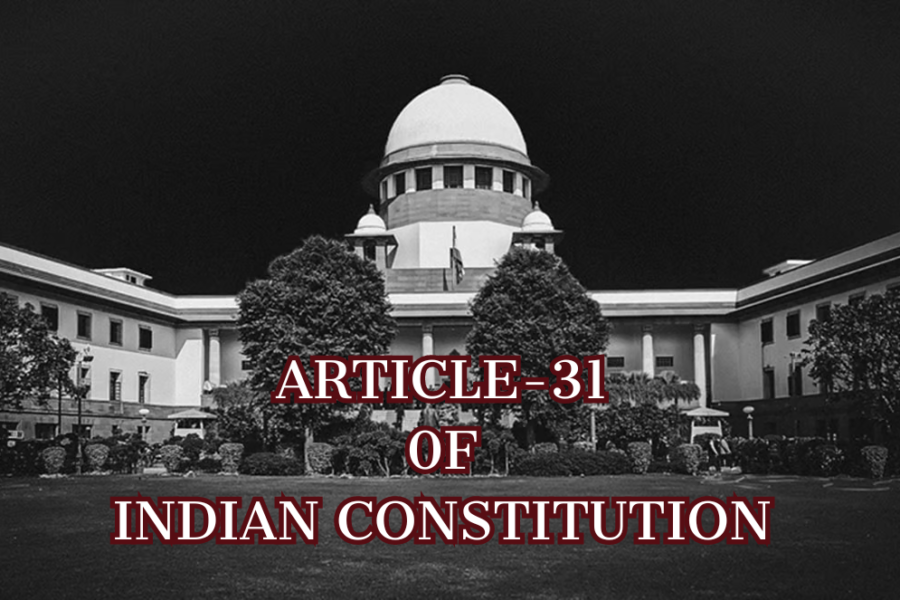Introduction
Article 131 of the Indian Constitution empowers the Supreme Court of India to adjudicate disputes between the Centre and a State, or between States, involving questions of law or fact. This provision is pivotal in maintaining the federal balance within the Indian Union. The recent case of State of West Bengal v. Union of India provides an important lens through which to examine the scope and interpretation of Article 131, reflecting the evolving dynamics between state and central authorities.
Article 131: Text and Context
Article 131 of the Indian Constitution reads:
“The Supreme Court shall, to the exclusion of any other court, have original jurisdiction in any dispute between the Government of India and one or more States or between the Government of India and any State or States on one side and one or more other States on the other side, if and in so far as the dispute involves any question (whether of law or of fact) on which the existence or extent of a legal right depends.”
This provision is significant as it grants the Supreme Court original jurisdiction in disputes involving the federal structure of India. The rationale behind this is to provide a uniform and authoritative resolution to conflicts between different levels of government.
The West Bengal Case: Facts and Issues
In the case of State of West Bengal v. Union of India (2023), the State of West Bengal challenged several central government actions, alleging encroachment upon its constitutional rights and powers. The issues raised included:
Central Government Directives: West Bengal contended that certain directives issued by the central government were infringing upon its autonomy in areas constitutionally within its jurisdiction.
Allocation of Funds: The state argued that the central government had unfairly withheld or misallocated funds meant for state development projects.
Implementation of Central Schemes: Disputes arose regarding the implementation of central schemes that West Bengal claimed were being imposed without proper consultation or consideration of state-specific needs.
Supreme Court’s Interpretation of Article 131
The Supreme Court’s approach in interpreting Article 131 has evolved through various judgments. The Court’s interpretation generally focuses on:
Jurisdictional Limits: The Court has consistently held that Article 131 provides an exclusive jurisdiction to the Supreme Court to resolve disputes between the Centre and States. However, this jurisdiction is limited to disputes that involve questions of law or fact related to the existence or extent of legal rights. Disputes purely administrative or those lacking a legal right component are typically outside the ambit of Article 131.
Scope of Disputes: In previous cases, the Court has emphasized that Article 131 cannot be invoked for disputes that do not fall within the specific legal framework of the Constitution. For example, administrative disputes or those related to policy implementation may not always be entertained under Article 131 if they do not involve legal rights or constitutional provisions directly.
Application to West Bengal Case
In the West Bengal v. Union of India case, the Supreme Court had to address whether the disputes raised by West Bengal fell within the scope of Article 131. The Court’s analysis included:
Legal Rights and Constitutional Boundaries: The Court assessed whether the disputes pertained to the infringement of constitutional rights or exceeded the boundaries of the Constitution. For instance, disputes related to the central directives and funds allocation were evaluated to determine if they involved questions about the state’s legal rights under the Constitution.
Federal Balance: The Supreme Court took into account the federal balance, ensuring that central authority did not unduly interfere with state powers. This balance is crucial in maintaining the autonomy of states while upholding the unity of the country.
Exclusivity of Jurisdiction: The Court reiterated that Article 131 provides an exclusive jurisdiction to resolve disputes of this nature and that other legal remedies or administrative mechanisms should be exhausted before invoking this provision.
Evaluating the West Bengal Case
The West Bengal v. Union of India case reflects several contemporary issues in federalism and the relationship between state and central authorities:
Federalism in Practice: The case underscores the practical challenges of federalism in India. It highlights how disputes often arise from the overlap of central and state jurisdictions, necessitating judicial intervention to maintain constitutional balance.
Administrative vs. Constitutional Disputes: The Court’s approach clarifies the distinction between administrative grievances and constitutional disputes. By focusing on whether the issues involved legal rights or constitutional provisions, the Court ensures that only appropriate disputes are adjudicated under Article 131.
Precedential Impact: The ruling has implications for future disputes between the Centre and States. It reaffirms the necessity for disputes to be grounded in constitutional rights and legal frameworks, thereby setting a precedent for similar cases.
Role of the Supreme Court: The case reinforces the Supreme Court’s role as the ultimate arbiter in federal disputes, emphasizing its function in interpreting constitutional provisions and maintaining the balance between different levels of government.
Conclusion
The Supreme Court’s interpretation of Article 131 in the West Bengal v. Union of India case is a testament to the evolving nature of federal jurisprudence in India. By focusing on the legal rights and constitutional implications of disputes, the Court ensures that its jurisdiction under Article 131 is exercised within the appropriate boundaries. This case not only reaffirms the principles of federalism but also provides clarity on the scope and application of Article 131, guiding future disputes between the Centre and States.


Providing international caliber services consistently.
lisinopril tablet side effects
Their online portal is user-friendly and intuitive.
An excellent choice for all pharmaceutical needs.
can i order generic cipro without dr prescription
Read information now.